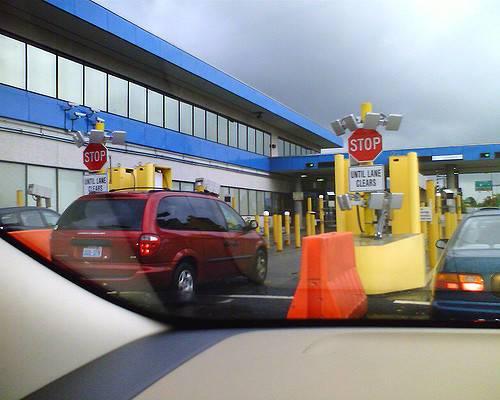
By Scott Huntington
Have you crossed any international borders recently? It can be a little nerve-wracking. The rules on the other side of that imaginary line are different in every country, and keeping track of how the laws work in several different countries can be a challenge. Sometimes the rules change very rapidly.
You probably know enough to avoid bringing illicit drugs or weapons across international borders. But sometimes, it’s the things you’re allowed to bring, but should leave for your own security, that can get you in trouble. We’re talking about private data.
A Matter of Homeland Security
Whether or not you’re a person of interest crossing into Russia or China is one thing, but here’s the truly frightening reality. This article is not about Russian or Chinese border policy — it’s a response to the increasingly draconian tactics of the U.S. Customs and Border Patrol.
President Trump has upheld and expanded multiple policies that allow agencies like the FBI, CIA and CBP to snoop into your private goings-on. Their level of access goes up if you’ve had any correspondence with people living outside of the United States.
More and more people are reporting their devices being seized, or even demands to supply password information to the CBP. So, what should you do if you’re planning an international trip and don’t want your privacy compromised?
Stay Calm and Delete Your Data
If you’re not a “suspicious person” — a term that now, for some reason, applies to your ethnic background — there’s still a good chance your private information is safe. But if you do need to travel with a device that’s carrying sensitive data, the best thing you can do is move that data off it.
Should authorities confront you and ask you to turn over your device, you’re probably not planning to run for it. International security involves strong layers of protection, including armed guards and robust crash barriers that can stop a 65,000lb truck at 50 mph. But you can back your device up to a cloud service beforehand and then wipe all data.
We also recommend using an encryption solution such as Apple’s Filevault or Bitlocker, and turning your device completely off before going through security to maximize the encryption service features.
If Your Device Gets Confiscated
Even though you have a right to privacy, the CBP may ask you to supply credentials for your phone or computer. If you want to fight the case, be prepared to spend long hours waiting in a dimly lit room. While the CBP can’t technically request access to your cloud-based information without a court order, the scenario isn’t out of the question.
Should you choose to cooperate, make sure you enter credentials yourself and do not divulge them to the security agents. Once compromised, your information could be shared through the government Intranet.
Alternatively, you could wait it out, and — if you’ve taken the right steps — there’s not much the CBP can find out right then and there. Be warned you might want to alert friends and family, and potentially a good attorney, before crossing the border if you think this is a possibility. Some people even travel with a dedicated set of travel devices, rather than their usual personal equipment, to guarantee no sensitive data is with them.
A World Without Privacy
Just how much all this bothers you is a different question for everyone. For example, younger people these days seem not to think much of privacy, since they’ve grown up in a world where the concept has a very different meaning than it did 50 years ago.
However, if your employer is counting on you or you have concerns related to your personal data, there are things you can do. Neglect will only catch up to you when it’s too late and there’s a stern-faced agent having a forward conversation with you. So be one step ahead of the game and travel with the confidence that your bits and bytes are safely locked down.
TriplePundit has published articles from over 1000 contributors. If you'd like to be a guest author, please get in touch!














